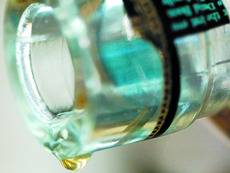Last spring, rush week went dried up. Things are no different this year.
According to Gregory Roskopf, assistant director for student activities and advisor to the Interfraternity Counsel, the dry policy “allows the chapter and the member to take an honest, unbiased look (at each other) so they can find the right fit.”
Jan. 19 marked the beginning of the 2007 Greek life recruitment season, also known as rush. Rush lasts 10 days and allows students to become familiar with each fraternity or sorority. The following week the organizations hand out bids and invitations.
According to Roskopf, the dry policy has always been a requirement for rush, but it was not always enforced.
“The IFC had become very lax … since Katrina, there has been a larger focus on responsibility in recruitment.”
Jason Seidman, psychology junior and president of Alpha Kappa Psi, Loyola’s co-ed business fraternity, set up a table on the first floor of Miller Hall.
He earnestly greets everyone that walks by. He hands out AKP’s recruitment schedule, which includes two on-campus events, a “Get to know you” game night on Feb. 1 and an interview session Feb 2. Seidman thinks the dry policy is “fine – we are interested in professionalism.”
He said this year their recruitment is far greater than ever.
This year also marks the return of the ADG fraternity to Loyola’s campus. According to Roskopf, the fraternity had its charter revoked last year because they held an unregistered off-campus event. All events must be cleared with the Student Activities office, whether they are on- or off-campus.
The Alpha Delta Gamma fraternity, which was suspended last year after an unregistered off-campus event, said they aren’t too concerned with the dry rush policy.
Jason Boice, a business sophomore and potential recruit said, “It’s tough, but I’m indifferent. I don’t make the rules, I just go with what the school says.” Even without alcohol involved, he said joining a fraternity is much more than parties. “It’s a tight knit group of people that watches out for each other; it seems like a good time.”
Roskopf said he understands it is also a matter of trust regarding whether or not the fraternities uphold the dry policy. He works with the officers of the IFC, and the fraternity presidents to make sure that they communicate constantly and openly about what’s going on.
“We’ve had a good response to the policy last year. We’ve had many discussions about what’s acceptable and what’s not,” Roskopf said.
Lizzie Ford-Madrid can be reached at [email protected].







